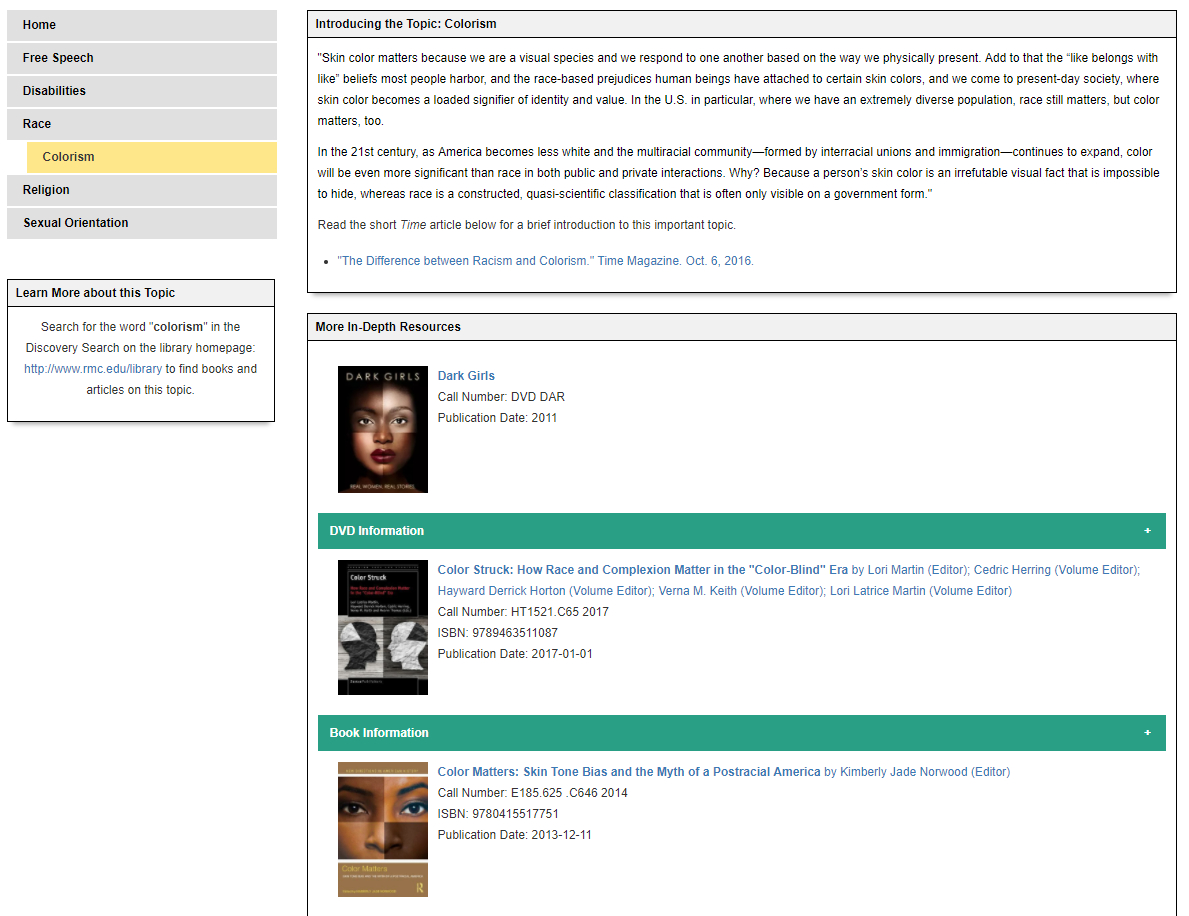Three on the Third is a monthly series in which we highlight three books new to the library collection. Summaries of the books will be provided along with shelf location and a link to the item in the catalog. This month we have three exciting new additions to our pop collection.
Tribe of Mentors: Short Life Advice from the Best in the World
by Timothy Ferriss
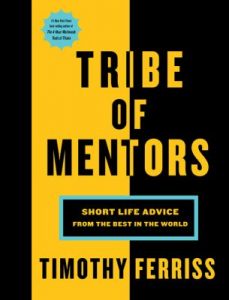 When facing life’s questions, who do you turn to for advice? We all need mentors, particularly when the odds seem stacked against us. To find his own … author Tim Ferriss tracked down more than 100 eclectic experts to help him, and you, navigate life. Through short, action-packed profiles, he shares their secrets for success, happiness, meaning, and more.
When facing life’s questions, who do you turn to for advice? We all need mentors, particularly when the odds seem stacked against us. To find his own … author Tim Ferriss tracked down more than 100 eclectic experts to help him, and you, navigate life. Through short, action-packed profiles, he shares their secrets for success, happiness, meaning, and more.
POP BF 637.S8 F47 2017
Catalog Link – Tribe of Mentors
Bunk: the Rise of Hoaxes, Humbug, Plagiarists, Phonies, Post-facts and Fake News
by Kevin Young
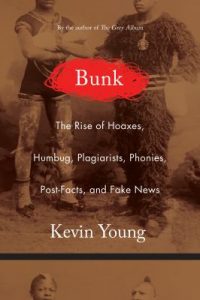 Award-winning poet and critic Kevin Young traces the history of the hoax as a peculiarly American phenomenon–the legacy of P.T. Barnum’s ‘humbug’ culminating with the currency of Donald J. Trump’s ‘fake news’. Disturbingly, Young finds that fakery is woven from stereotype and suspicion, with race being the most insidious American hoax of all. He chronicles how Barnum came to fame by displaying figures like Joice Heth, a black woman whom he pretended was the 161-year-old nursemaid to George Washington, and ‘What Is It?’, an African American man Barnum professed was a newly discovered missing link in evolution. Bunk then turns to the hoaxing of history and the ways that forgers, plagiarists, and journalistic fakers invent backstories and falsehoods to sell us lies about themselves and about the world in our own time, from pretend Native Americans like Nasdijj to the deadly imposture of Clark Rockefeller, from the made-up memoirs of James Frey to the identity theft of Rachel Dolezal. This brilliant and timely work asks what it means to live in a post-factual world of ‘truthiness’ where everything is up for interpretation and everyone is subject to a pervasive cynicism that damages our ideas of reality, fact, and art.
Award-winning poet and critic Kevin Young traces the history of the hoax as a peculiarly American phenomenon–the legacy of P.T. Barnum’s ‘humbug’ culminating with the currency of Donald J. Trump’s ‘fake news’. Disturbingly, Young finds that fakery is woven from stereotype and suspicion, with race being the most insidious American hoax of all. He chronicles how Barnum came to fame by displaying figures like Joice Heth, a black woman whom he pretended was the 161-year-old nursemaid to George Washington, and ‘What Is It?’, an African American man Barnum professed was a newly discovered missing link in evolution. Bunk then turns to the hoaxing of history and the ways that forgers, plagiarists, and journalistic fakers invent backstories and falsehoods to sell us lies about themselves and about the world in our own time, from pretend Native Americans like Nasdijj to the deadly imposture of Clark Rockefeller, from the made-up memoirs of James Frey to the identity theft of Rachel Dolezal. This brilliant and timely work asks what it means to live in a post-factual world of ‘truthiness’ where everything is up for interpretation and everyone is subject to a pervasive cynicism that damages our ideas of reality, fact, and art.
POP HV 6691 .Y674 2017
Catalog Link – Bunk
Dreaming the Beatles
by Rob Sheffield
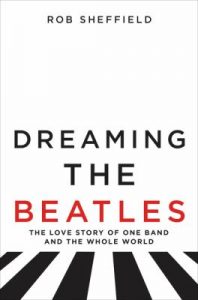 From Dreaming the Beatles John, Paul, George, and Ringo remain the world’s favorite thing. Yet every theory ever devised to explain why has failed. It wasn’t their timing. It wasn’t drugs. It wasn’t that they were the voice of a generation. The vast majority of Beatles fans today weren’t born when the records came out–yet the allure of the music keeps on growing, nearly fifty years after the band split. The world keeps dreaming the Beatles, long after the Beatles themselves figured the dream was over. Our Beatles have outlasted theirs. It is truly impossible to imagine a world without the Beatles. Yes, they are the biggest, most iconic rock band of all time. Their music continues to delight, define, and provide a soundtrack for fans all over the globe. It seems, however, that with each passing decade this band has become more popular, more influential, more ubiquitous, more beloved, just MORE, and in Dreaming the Beatles, the Rolling Stone columnist and bestselling author of Love Is a Mix Tape brings his singular voice to the most universal pop culture phenomenon in history, exploring what the Beatles mean today and why they still matter so intensely to a generation that has never known a world without them. This is not another biography of the band, or an expose of how they broke up. It isn’t a history of their gigs or gear. It’s a fresh, unconventional look at the Beatles’ astounding story, from their early friendship to their Sixties creative explosion to their crazed solo years. And, as in his previous books like Talking to Girls About Duran Duran and On Bowie, Sheffield focuses on the emotional connections we make to music. Chronicling his lifelong obsession with the Beatles along with the rest of the world’s, Dreaming the Beatles is a passionate celebration of the band and their music, showing how John, Paul, George, and Ringo invented the future we’re living in today. It’s a book that is brilliant, fresh, and universal–kind of like the Beatles themselves.
From Dreaming the Beatles John, Paul, George, and Ringo remain the world’s favorite thing. Yet every theory ever devised to explain why has failed. It wasn’t their timing. It wasn’t drugs. It wasn’t that they were the voice of a generation. The vast majority of Beatles fans today weren’t born when the records came out–yet the allure of the music keeps on growing, nearly fifty years after the band split. The world keeps dreaming the Beatles, long after the Beatles themselves figured the dream was over. Our Beatles have outlasted theirs. It is truly impossible to imagine a world without the Beatles. Yes, they are the biggest, most iconic rock band of all time. Their music continues to delight, define, and provide a soundtrack for fans all over the globe. It seems, however, that with each passing decade this band has become more popular, more influential, more ubiquitous, more beloved, just MORE, and in Dreaming the Beatles, the Rolling Stone columnist and bestselling author of Love Is a Mix Tape brings his singular voice to the most universal pop culture phenomenon in history, exploring what the Beatles mean today and why they still matter so intensely to a generation that has never known a world without them. This is not another biography of the band, or an expose of how they broke up. It isn’t a history of their gigs or gear. It’s a fresh, unconventional look at the Beatles’ astounding story, from their early friendship to their Sixties creative explosion to their crazed solo years. And, as in his previous books like Talking to Girls About Duran Duran and On Bowie, Sheffield focuses on the emotional connections we make to music. Chronicling his lifelong obsession with the Beatles along with the rest of the world’s, Dreaming the Beatles is a passionate celebration of the band and their music, showing how John, Paul, George, and Ringo invented the future we’re living in today. It’s a book that is brilliant, fresh, and universal–kind of like the Beatles themselves.
POP ML 421 .B4 S5 2017
Catalog Link – Dreaming the Beatles
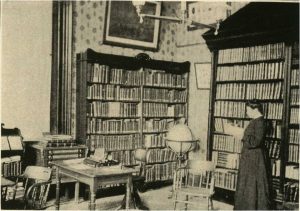
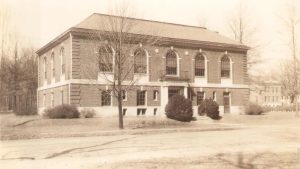
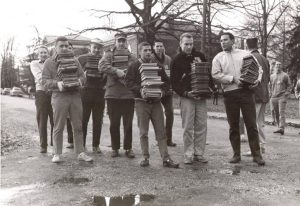
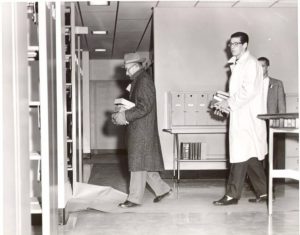

 When facing life’s questions, who do you turn to for advice? We all need mentors, particularly when the odds seem stacked against us. To find his own … author Tim Ferriss tracked down more than 100 eclectic experts to help him, and you, navigate life. Through short, action-packed profiles, he shares their secrets for success, happiness, meaning, and more.
When facing life’s questions, who do you turn to for advice? We all need mentors, particularly when the odds seem stacked against us. To find his own … author Tim Ferriss tracked down more than 100 eclectic experts to help him, and you, navigate life. Through short, action-packed profiles, he shares their secrets for success, happiness, meaning, and more. Award-winning poet and critic Kevin Young traces the history of the hoax as a peculiarly American phenomenon–the legacy of P.T. Barnum’s ‘humbug’ culminating with the currency of Donald J. Trump’s ‘fake news’. Disturbingly, Young finds that fakery is woven from stereotype and suspicion, with race being the most insidious American hoax of all. He chronicles how Barnum came to fame by displaying figures like Joice Heth, a black woman whom he pretended was the 161-year-old nursemaid to George Washington, and ‘What Is It?’, an African American man Barnum professed was a newly discovered missing link in evolution. Bunk then turns to the hoaxing of history and the ways that forgers, plagiarists, and journalistic fakers invent backstories and falsehoods to sell us lies about themselves and about the world in our own time, from pretend Native Americans like Nasdijj to the deadly imposture of Clark Rockefeller, from the made-up memoirs of James Frey to the identity theft of Rachel Dolezal. This brilliant and timely work asks what it means to live in a post-factual world of ‘truthiness’ where everything is up for interpretation and everyone is subject to a pervasive cynicism that damages our ideas of reality, fact, and art.
Award-winning poet and critic Kevin Young traces the history of the hoax as a peculiarly American phenomenon–the legacy of P.T. Barnum’s ‘humbug’ culminating with the currency of Donald J. Trump’s ‘fake news’. Disturbingly, Young finds that fakery is woven from stereotype and suspicion, with race being the most insidious American hoax of all. He chronicles how Barnum came to fame by displaying figures like Joice Heth, a black woman whom he pretended was the 161-year-old nursemaid to George Washington, and ‘What Is It?’, an African American man Barnum professed was a newly discovered missing link in evolution. Bunk then turns to the hoaxing of history and the ways that forgers, plagiarists, and journalistic fakers invent backstories and falsehoods to sell us lies about themselves and about the world in our own time, from pretend Native Americans like Nasdijj to the deadly imposture of Clark Rockefeller, from the made-up memoirs of James Frey to the identity theft of Rachel Dolezal. This brilliant and timely work asks what it means to live in a post-factual world of ‘truthiness’ where everything is up for interpretation and everyone is subject to a pervasive cynicism that damages our ideas of reality, fact, and art. From Dreaming the Beatles John, Paul, George, and Ringo remain the world’s favorite thing. Yet every theory ever devised to explain why has failed. It wasn’t their timing. It wasn’t drugs. It wasn’t that they were the voice of a generation. The vast majority of Beatles fans today weren’t born when the records came out–yet the allure of the music keeps on growing, nearly fifty years after the band split. The world keeps dreaming the Beatles, long after the Beatles themselves figured the dream was over. Our Beatles have outlasted theirs. It is truly impossible to imagine a world without the Beatles. Yes, they are the biggest, most iconic rock band of all time. Their music continues to delight, define, and provide a soundtrack for fans all over the globe. It seems, however, that with each passing decade this band has become more popular, more influential, more ubiquitous, more beloved, just MORE, and in Dreaming the Beatles, the Rolling Stone columnist and bestselling author of Love Is a Mix Tape brings his singular voice to the most universal pop culture phenomenon in history, exploring what the Beatles mean today and why they still matter so intensely to a generation that has never known a world without them. This is not another biography of the band, or an expose of how they broke up. It isn’t a history of their gigs or gear. It’s a fresh, unconventional look at the Beatles’ astounding story, from their early friendship to their Sixties creative explosion to their crazed solo years. And, as in his previous books like Talking to Girls About Duran Duran and On Bowie, Sheffield focuses on the emotional connections we make to music. Chronicling his lifelong obsession with the Beatles along with the rest of the world’s, Dreaming the Beatles is a passionate celebration of the band and their music, showing how John, Paul, George, and Ringo invented the future we’re living in today. It’s a book that is brilliant, fresh, and universal–kind of like the Beatles themselves.
From Dreaming the Beatles John, Paul, George, and Ringo remain the world’s favorite thing. Yet every theory ever devised to explain why has failed. It wasn’t their timing. It wasn’t drugs. It wasn’t that they were the voice of a generation. The vast majority of Beatles fans today weren’t born when the records came out–yet the allure of the music keeps on growing, nearly fifty years after the band split. The world keeps dreaming the Beatles, long after the Beatles themselves figured the dream was over. Our Beatles have outlasted theirs. It is truly impossible to imagine a world without the Beatles. Yes, they are the biggest, most iconic rock band of all time. Their music continues to delight, define, and provide a soundtrack for fans all over the globe. It seems, however, that with each passing decade this band has become more popular, more influential, more ubiquitous, more beloved, just MORE, and in Dreaming the Beatles, the Rolling Stone columnist and bestselling author of Love Is a Mix Tape brings his singular voice to the most universal pop culture phenomenon in history, exploring what the Beatles mean today and why they still matter so intensely to a generation that has never known a world without them. This is not another biography of the band, or an expose of how they broke up. It isn’t a history of their gigs or gear. It’s a fresh, unconventional look at the Beatles’ astounding story, from their early friendship to their Sixties creative explosion to their crazed solo years. And, as in his previous books like Talking to Girls About Duran Duran and On Bowie, Sheffield focuses on the emotional connections we make to music. Chronicling his lifelong obsession with the Beatles along with the rest of the world’s, Dreaming the Beatles is a passionate celebration of the band and their music, showing how John, Paul, George, and Ringo invented the future we’re living in today. It’s a book that is brilliant, fresh, and universal–kind of like the Beatles themselves.